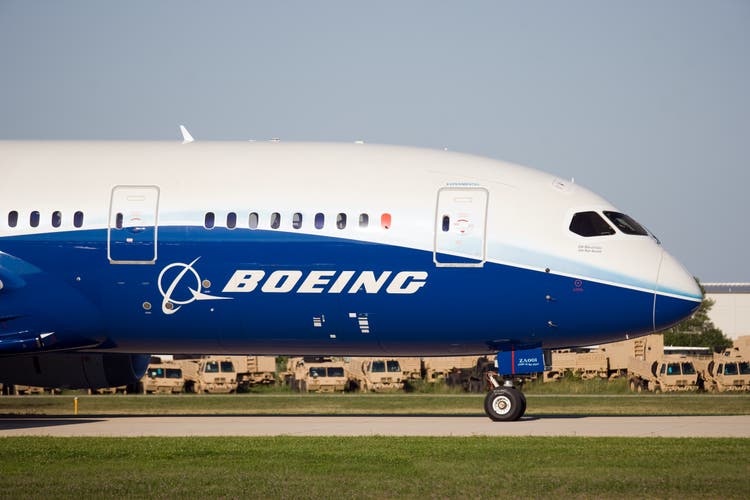Boeing will increase production of its 787 Dreamliner and 737 Max jets

Boeing will increase production of its troubled 787 Dreamliner and 737 Max aircraft over the next few years, giving investors a reason to be optimistic about the stock, Morgan Stanley predicts in a new research note.
Morgan, which has an Overweight rating on BA, forecast that production of the 737 Max narrowbody jet will rise 13% to an average of 35 a month by 2023’s second half.
The firm added that the 737 Max also has the potential to boost orders, especially in China, given that chief rival Airbus has reached its production limit on narrowbody orders through 2028.
That’s good news for the 737 Max, which has had a checkered history. Aviation authorities around the world grounded the model for some two years following fatal crashes in 2018 and 2019.
Meanwhile, Morgan said Boeing’s Aug. 10 resumption of deliveries on the 787 Dreamliner after a 15-month hiatus can also help Boeing to meet its goal of positive free cash flow this year.
The company had halted production of the aircraft amid regulatory scrutiny of its manufacturing after the 737 Max was grounded. The pandemic also hurt demand for new planes.
The 787 Dreamliner, a hit product because of its fuel efficiency, makes long-haul flights more profitable for airlines. It generates about $17 billion a year in revenue for Boeing, according to Morgan Stanley. The bank forecasts that the company will increase production of 787s from three a month through the end of 2023 to six a month in 2025.
The longer-term outlook is positive after Boeing received multiple orders for new aircraft at the Farnborough Airshow last month, and order cancellations have been fewer than expected.
Possible Jet Engine Shortage for 737 Max
On the other hand, Morgan also laid out a possible bearish case for Boeing (BA), saying the company faces risks in its supply chain and production that will limit its ability to meet strong demand from airlines.
The bank warned that a jet-engine shortage could negatively affect the production of the 737 Max, whose order book could also suffer from geopolitical tensions between the United States and China. In addition, there are uncertainties about the additional rework on 787s in its inventory, according to Morgan Stanley.
Morgan’s analysis comes after Boeing’s revenue slipped 1.8% from a year earlier to $16.7 billion in the second quarter, missing analyst estimates of $17.6 billion. Meanwhile, BA’s net income of $160 million, or $0.32 in earnings per share, missed estimates and was down from $567 million ($1 EPS) a year earlier.
An adjusted loss of $0.37 per share that excludes pension charges was lower than the consensus estimate for a loss of $0.13 a share.
Still, Seeking Alpha contributors have a mixed view of the stock. JR Research recently downgraded its rating on BA from Buy to Hold, citing the stock’s gains since a year-to-date low in June.
But Seeking Alpha columnist Dhierin Bechai, author of the Aerospace Forum, has a Buy rating on BA because of the positive outlook for aircraft orders.
